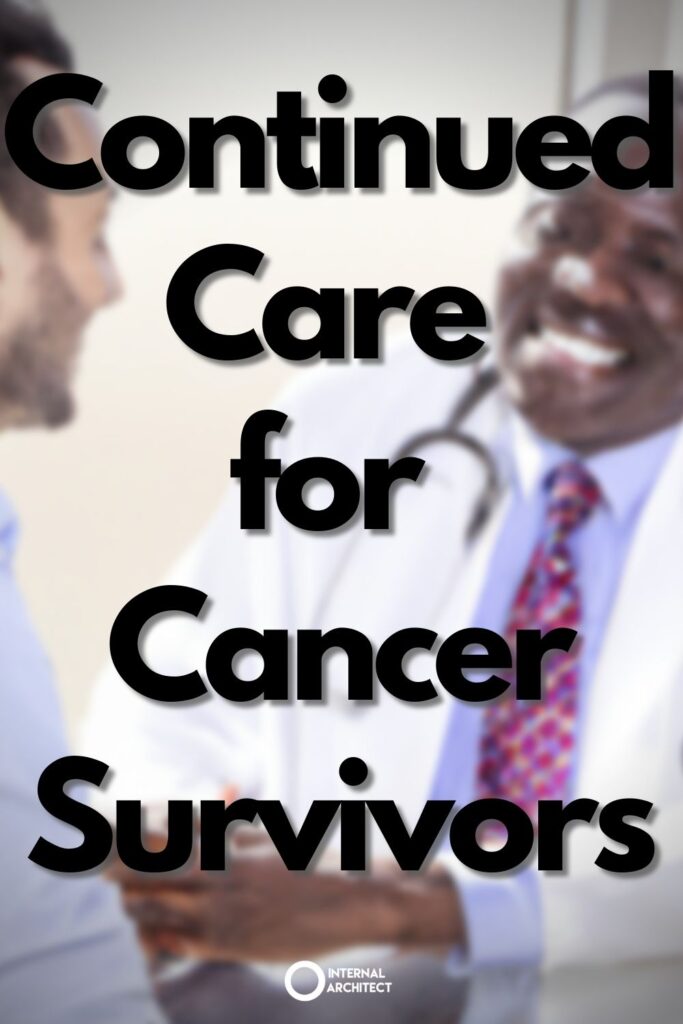As a cancer survivor, it’s important to understand the importance of continued care. Even after treatment is completed, your body and mind may still be recovering from the effects of cancer and treatment. Here are six important reasons why continued care is essential for cancer survivors:
- Monitoring for recurrence
- Managing side effects
- Addressing emotional and psychological needs
- Addressing physical and functional needs:
- Managing comorbidities:
- Providing information and resources:
By understanding the importance of continued care and seeking out the appropriate resources, cancer survivors can improve their overall health and well-being in the years after treatment.
Let’s dive a little deeper…
Monitoring for recurrence:
It’s very important for people who have had cancer to keep going for regular check-ups and screenings. This is so that any signs of cancer coming back can be spotted quickly. If it is discovered early, it can make it more likely that treatment will work well. So don’t forget to go in for those check-ups!
Managing side effects
Treatments can oftentimes cause people to feel tired, have pain, and have trouble thinking. It can make it hard for someone to do their usual activities or enjoy life. But there is help available! People who have finished cancer treatment can get continued care so they can manage these side effects and feel better. That way, survivors of cancer are able to keep living life the way they want to!
Addressing emotional and psychological needs:
Having cancer can be a really scary and hard experience, and it’s totally normal for survivors to feel lots of different emotions. It’s important to have the support of people who understand what you’re going through so that you can work through any big feelings you might have. Resources like counseling or support groups can help provide the extra guidance and understanding needed to cope with these feelings in a healthy way.
Addressing physical and functional needs
Cancer is tough and it can make life hard by making us feel weak and tired. Even unable to do things we used to be able to do. Luckily, there are people who can help cancer survivors address any limitations they have in their physical and functional abilities. These people provide special services that help us get back our strength and skills so we can go through life like before.
Managing comorbidities
As a cancer survivor, you may be more likely to get medical conditions like heart disease and osteoporosis. But with the right care, you can help keep these conditions from happening or getting worse. That way, you’ll stay in good health and feel your best!
Providing information and resources
It can be really hard going through cancer, but it is important to have access to all the right information and resources. That way you can make decisions about your health that are best for you. Having access to accurate and up-to-date information will help you stay informed to make decisions that help improve your overall outcome.
Final Thoughts
The journey of a cancer survivor doesn’t end with the completion of treatment. Continued care is an essential aspect of the recovery process, as it addresses the physical, emotional, and psychological needs of survivors. From monitoring for recurrence to managing side effects and comorbidities to providing information and resources, continued care can help cancer survivors improve their overall health and well-being.
It’s important to remember that each survivor’s experience is unique, and it’s important to find a care plan that works best for the individual. Cancer survivors deserve empathy and understanding as they navigate their journey, and continued care can provide the support and resources they need to move forward. -Todd
6 Good and Bad not-so-known facts about cancer survivorship
- Good fact: Cancer survivors are living longer than ever before. Advances in cancer treatment and early detection have led to an increase in cancer survival rates.
- Bad fact: Cancer survivors may have a higher risk of developing other chronic health conditions, such as heart disease, osteoporosis, and lung problems.
- Good fact: Cancer survivors have access to various support groups and resources to help them cope with the physical, emotional, and psychological effects of cancer.
- Bad fact: Cancer survivors may face financial burdens due to the high cost of cancer treatment and the loss of income from time off work.
- Good fact: Cancer survivors can work with their healthcare team to develop a personalized care plan to address their specific needs.
- Bad fact: Cancer survivors may face discrimination in the workplace and struggle to find employment due to their cancer history.

